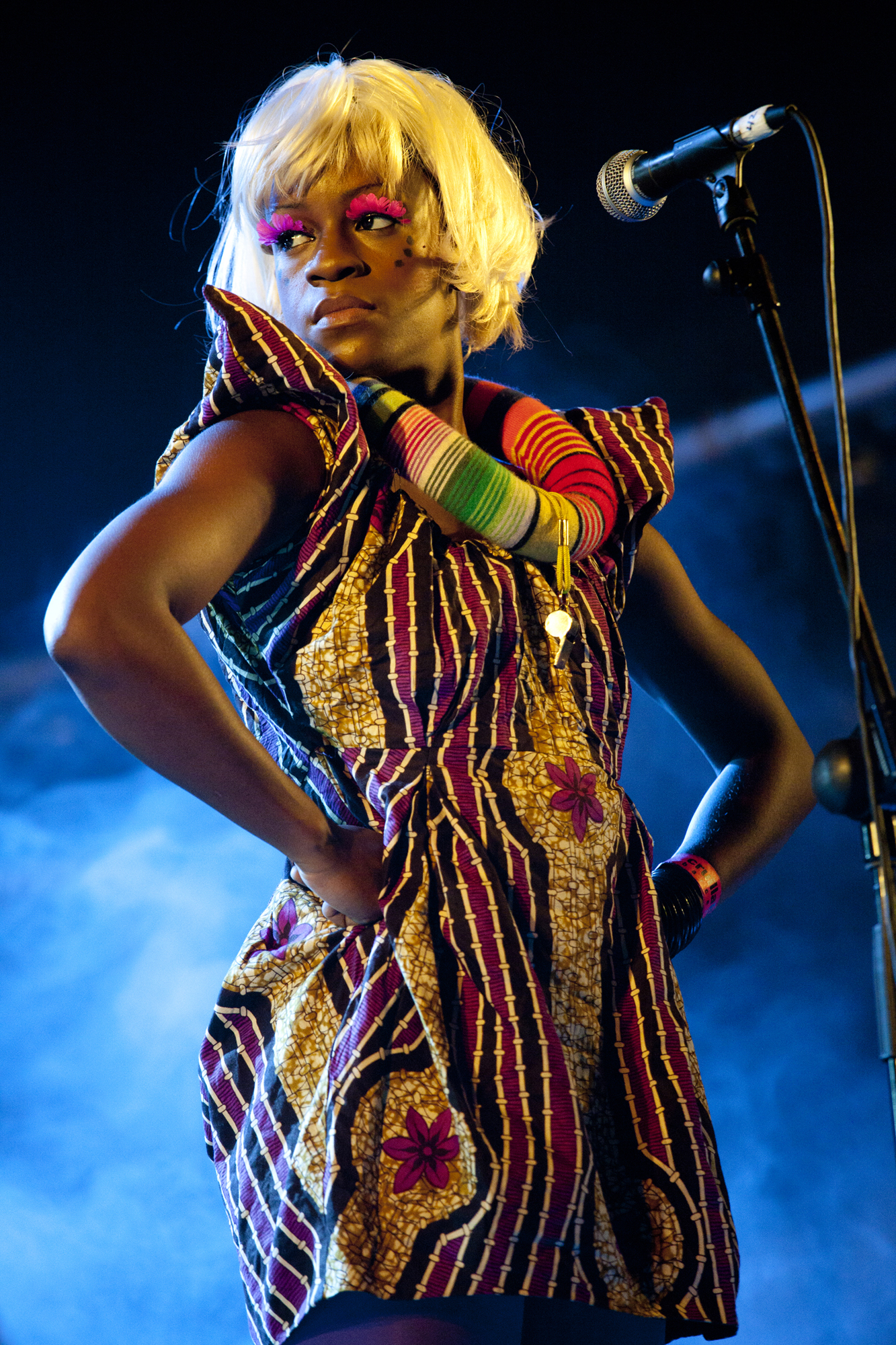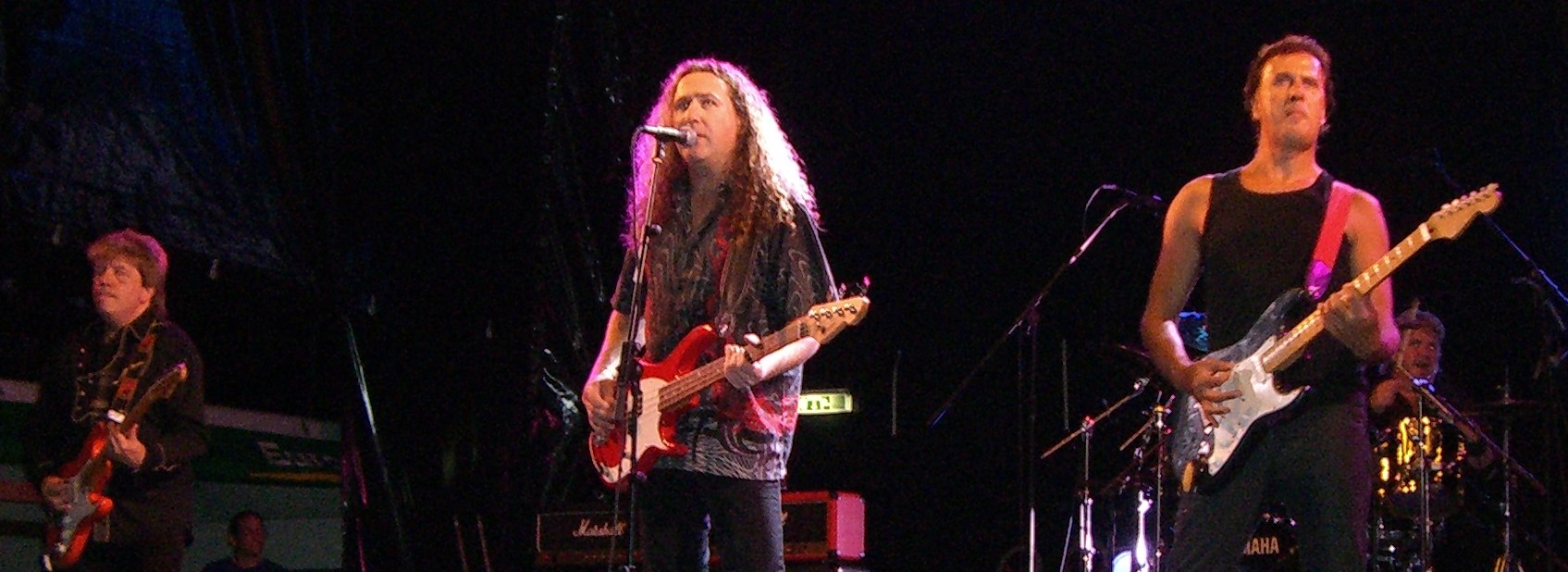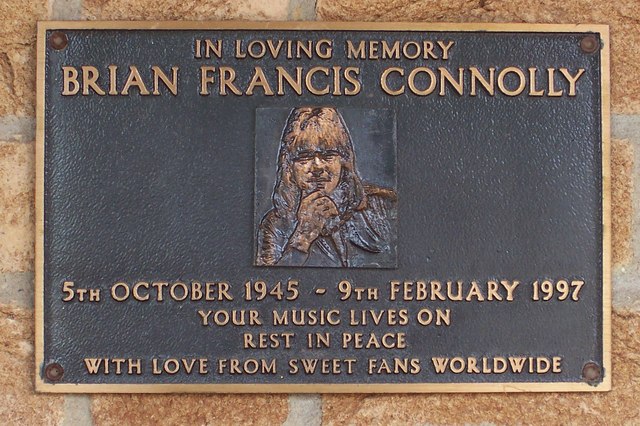|
Little Willy (song)
"Little Willy" is a song written by songwriters Nicky Chinn and Mike Chapman and performed by the British glam rock band The Sweet, released in 1972 as a non-album single in the UK, peaking at #4 in the best seller charts. It was released in the US in September 1972 and also appeared on their US debut album ''The Sweet (album), The Sweet'' and became their biggest hit in the US, reaching #3 on the Billboard Hot 100, ''Billboard'' Hot 100. ''Billboard'' ranked it as the Billboard Year-End Hot 100 singles of 1973, #18 song for 1973. In a retrospective review of glam rock, glitter rock, ''Bomp!'' noted that although rock music journalists almost uniformly "loathed it", the song was a huge commercial success and "helped launch the essential glitter rock formula sound". "Little Willy" was used extensively in the pilot of the television series ''Life on Mars (UK TV series), Life on Mars''. Chart performance Weekly charts Year-end charts Personnel "Little Willy" *Brian Conno ... [...More Info...] [...Related Items...] OR: [Wikipedia] [Google] [Baidu] |
The Sweet
The Sweet (often shortened to just Sweet), are a British glam rock band that rose to prominence in the 1970s. Their best known line-up consisted of lead vocalist Brian Connolly, bass player Steve Priest, guitarist Andy Scott, and drummer Mick Tucker. The group were originally called The Sweetshop. The band were formed in London in 1968 and achieved their first hit, " Funny Funny", in 1971 after teaming up with songwriters Nicky Chinn and Mike Chapman and record producer Phil Wainman. During 1971 and 1972, their musical style followed a marked progression from the Archies-like bubblegum style of "Funny Funny" to a Who-influenced hard rock style supplemented by a striking use of high-pitched backing vocals. The band first achieved success in the UK charts, with thirteen Top 20 hits during the 1970s alone, with "Block Buster!" (1973) topping the chart, followed by three consecutive number two hits in "Hell Raiser" (1973), "The Ballroom Blitz" (1973) and "Teenage Rampage" (1974) ... [...More Info...] [...Related Items...] OR: [Wikipedia] [Google] [Baidu] |
Billboard Year-End Hot 100 Singles Of 1973
This is a list of ''Billboard'' magazine's Top Hot 100 songs of 1973. The Top 100, as revealed in the year-end edition of ''Billboard'' dated December 29, 1973, is based on Hot 100 charts from the issue dates of November 25, 1972 through November 17, 1973. See also *1973 in music * List of Billboard Hot 100 number-one singles of 1973 *List of Billboard Hot 100 top-ten singles in 1973 This is a list of singles that have appeared in the Top 10 of the ''Billboard'' Hot 100 during 1973. There were a total of 105 singles that were in the Top 10 (97 of those peaked in 1973, four had peaked in late 1972, and four would peak in ea ... References {{DISPLAYTITLE:''Billboard'' Year-End Hot 100 singles of 1973 1973 record charts Billboard charts ... [...More Info...] [...Related Items...] OR: [Wikipedia] [Google] [Baidu] |
Pip Williams
Philip Malcolm "Pip" Williams (born 7 October 1947) is a record producer, arranger and guitarist, best known for producing albums for Status Quo and The Moody Blues and acting as well as supervising the orchestra parts and orchestra arrangements for the Finnish metal band Nightwish. Career Williams was born in Hillingdon, Middlesex. He became inspired to play the guitar after listening to records by The Shadows and Buddy Holly. He started his musical career as guitarist for The Fantastics and Jimmy James and the Vagabonds. Progressing from performer to session musician in the early 1970s under the patronage of Sweet producer Phil Wainman, he became one of the most in-demand session guitarists of the era, playing on early hit records for Sweet including "Funny Funny", "Co-Co", "Poppa Joe" and "Little Willy", and on The Walker Brothers' hit " No Regrets". He moved into production in the late 1970s; his work for Graham Bonnet attracted the attention of Status Quo, who hired ... [...More Info...] [...Related Items...] OR: [Wikipedia] [Google] [Baidu] |
Mick Tucker
Michael Thomas Tucker (17 July 1947 – 14 February 2002) was an English musician, best known as the drummer and backing vocalist of the glam rock and hard rock band Sweet. Biography Mick Tucker was born on July 17, 1947, in Kingsbury, North West London, the son of Hubert and Ellen Tucker. He was married twice: to Pauline until her death in 1979, and to Janet until his death. He died from leukaemia on February 14, 2002, in Welwyn Garden City, Hertfordshire. Personal life On 28 July 1973, Tucker married his first wife, Pauline, at the Church of the Sacred Heart in Ruislip, Middlesex. They then moved into a house in Beverley Road, Ruislip. He had a music room with silver and gold albums awarded from all over the world on the walls. Bands By the age of 18 (1965), Tucker had embarked on a career in pop music, playing around pubs and clubs in a band called Wainwright's Gentlemen and was later joined by vocalist Brian Connolly playing a mixture of R&B, Motown, and early psychedelic ... [...More Info...] [...Related Items...] OR: [Wikipedia] [Google] [Baidu] |
Steve Priest
Stephen Norman Priest (23 February 1948 – 4 June 2020) was an English musician who was the bassist (and, later, lead vocalist) of the glam rock band The Sweet. Biography Priest was born in Hayes, Middlesex. He made his own bass guitar and began playing in local bands as a young teenager, after being influenced by artists such as Jet Harris of the Shadows, the Rolling Stones and The Who. In January 1968, Priest was invited to form a four-piece band with vocalist Brian Connolly, drummer Mick Tucker, and guitarist Frank E. Torpey (b. 30 April 1947, Kilburn, North West London) – the band that was to become The Sweet. Torpey was replaced by Mick Stewart in July 1969. Guitarist Andy Scott joined in August 1970, following Stewart's departure and the classic line-up was established. The Sweet was a band that went through many ups and downs. Initial success for The Sweet began in 1971, after the band teamed up with songwriters Nicky Chinn and Mike Chapman. However, The Sweet would ... [...More Info...] [...Related Items...] OR: [Wikipedia] [Google] [Baidu] |
Backing Vocals
A backing vocalist is a singer who provides vocal harmony with the lead vocalist or other backing vocalists. A backing vocalist may also sing alone as a lead-in to the main vocalist's entry or to sing a counter-melody. Backing vocalists are used in a broad range of popular music, traditional music, and world music styles. Solo artists may employ professional backing vocalists in studio recording sessions as well as during concerts. In many rock and metal bands (e.g., the power trio), the musicians doing backing vocals also play instruments, such as guitar, electric bass, drums or keyboards. In Latin or Afro-Cuban groups, backing singers may play percussion instruments or shakers while singing. In some pop and hip hop groups and in musical theater, they may be required to perform dance routines while singing through headset microphones. Styles of background vocals vary according to the type of song and genre of music. In pop and country songs, backing vocalists may sing harmo ... [...More Info...] [...Related Items...] OR: [Wikipedia] [Google] [Baidu] |
Andy Scott (guitarist)
Andrew David Scott (born 30 June 1949) is a Welsh musician and songwriter. He is best known for being the lead guitarist and a backing vocalist in the band Sweet. Following bassist Steve Priest's death in June 2020, Scott is the last surviving member of the band's classic lineup. Career Early career Scott started out playing bass guitar. His first gig was at St Peters Hall in Wrexham with The Rasjaks in November 1963 and then with other bands in Wales such as Guitars Incorporated and 3Ds. He then progressed to guitar and played with other bands including The Saints, The ForeWinds, and The Missing Links. In 1966 he joined The Silverstone Set (later shortened to The Silverstones), who won the TV show '' Opportunity Knocks'' five weeks running, and appeared in the all-winners show for Christmas 1966, losing to Freddie Starr. One of their further highlights was to support Jimi Hendrix in Manchester in January 1967. When The Silverstones split, Scott went on to form The Elast ... [...More Info...] [...Related Items...] OR: [Wikipedia] [Google] [Baidu] |
Lead Vocals
The lead vocalist in popular music is typically the member of a group or band whose voice is the most prominent melody in a performance where multiple voices may be heard. The lead singer sets their voice against the accompaniment parts of the ensemble as the dominant sound. In vocal group performances, notably in soul and gospel music, and early rock and roll, the lead singer takes the main vocal melody, with a chorus or harmony vocals provided by other band members as backing vocalists. Lead vocalists typically incorporate some movement or gestures into their performance, and some may participate in dance routines during the show, particularly in pop music. Some lead vocalists also play an instrument during the show, either in an accompaniment role (such as strumming a guitar part), or playing a lead instrument/instrumental solo role when they are not singing (as in the case of lead singer-guitar virtuoso Jimi Hendrix). The lead singer also typically guides the vocal ensem ... [...More Info...] [...Related Items...] OR: [Wikipedia] [Google] [Baidu] |
Brian Connolly
Brian Francis Connolly (5 October 1945 – 9 February 1997) was a Scottish singer-songwriter, musician and actor, best known as the lead singer of glam rock band The Sweet between 1968 and 1979 and renowned for his charismatic stage presence and distinctive voice. Early life Connolly was born in 1945 in Hamilton, South Lanarkshire. His mother was a teenage waitress, Frances Connolly, who left him in a Glasgow hospital as an infant whilst he was possibly suffering from meningitis. The identity of his biological father was never made public. Connolly was fostered at the age of two by Jim and Helen McManus of Blantyre, South Lanarkshire and took their family name. After inadvertently discovering his lineage, he eventually reverted to the name Connolly. The McManuses were the family of Mark McManus, of ''Taggart'' fame. Both men perceived a resemblance between them, and supposed McManus's father to have also been Connolly's. In a radio interview, Connolly reported that singing wa ... [...More Info...] [...Related Items...] OR: [Wikipedia] [Google] [Baidu] |
Sounds (magazine)
''Sounds'' was a UK weekly pop/rock music newspaper, published from 10 October 1970 to 6 April 1991. It was known for giving away posters in the centre of the paper (initially black and white, then colour from late 1971) and later for covering heavy metal (especially the new wave of British heavy metal (NWOBHM)) and punk and Oi! music in its late 1970s–early 1980s heyday. History It was produced by Spotlight Publications (part of Morgan Grampian), which was set up by John Thompson and Jo Saul with Jack Hutton and Peter Wilkinson, who left ''Melody Maker'' to start their own company. ''Sounds'' was their first project, a weekly paper devoted to progressive rock and described by Hutton, to those he was attempting to recruit from his former publication, as "a leftwing ''Melody Maker''". ''Sounds'' was intended to be a weekly rival to titles such as ''Melody Maker'' and ''New Musical Express'' (''NME''). ''Sounds'' was one of the first music papers to cover punk. Mick Middles c ... [...More Info...] [...Related Items...] OR: [Wikipedia] [Google] [Baidu] |
Billboard (magazine)
''Billboard'' (stylized as ''billboard'') is an American music and entertainment magazine published weekly by Penske Media Corporation. The magazine provides music charts, news, video, opinion, reviews, events, and style related to the music industry. Its music charts include the Hot 100, the 200, and the Global 200, tracking the most popular albums and songs in different genres of music. It also hosts events, owns a publishing firm, and operates several TV shows. ''Billboard'' was founded in 1894 by William Donaldson and James Hennegan as a trade publication for bill posters. Donaldson later acquired Hennegan's interest in 1900 for $500. In the early years of the 20th century, it covered the entertainment industry, such as circuses, fairs, and burlesque shows, and also created a mail service for travelling entertainers. ''Billboard'' began focusing more on the music industry as the jukebox, phonograph, and radio became commonplace. Many topics it covered were spun-off ... [...More Info...] [...Related Items...] OR: [Wikipedia] [Google] [Baidu] |
Springbok Radio
Springbok Radio (spelled ''Springbokradio'' in Afrikaans, ) was a South African nationwide radio station that operated from 1950 to 1986. History SABC's decision in December 1945 to develop a commercial service was constrained by post-war financial issues. After almost five years of investigation and after consulting Lord Reith of the BBC and the South African government, it decided to introduce commercial radio to supplement the SABC's public service English and Afrikaans networks and help solve the SABC's financial problems. The SABC would build the equipment and facilities and would place them at the disposal of advertisers and their agencies at cost for productions and allow them to make use of SABC's production staff. On 1 May 1950, the first commercial radio station in South Africa, Springbok Radio, took to the air. [...More Info...] [...Related Items...] OR: [Wikipedia] [Google] [Baidu] |





